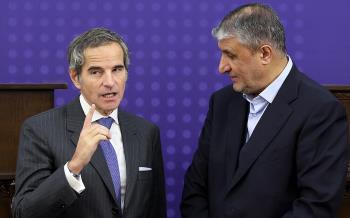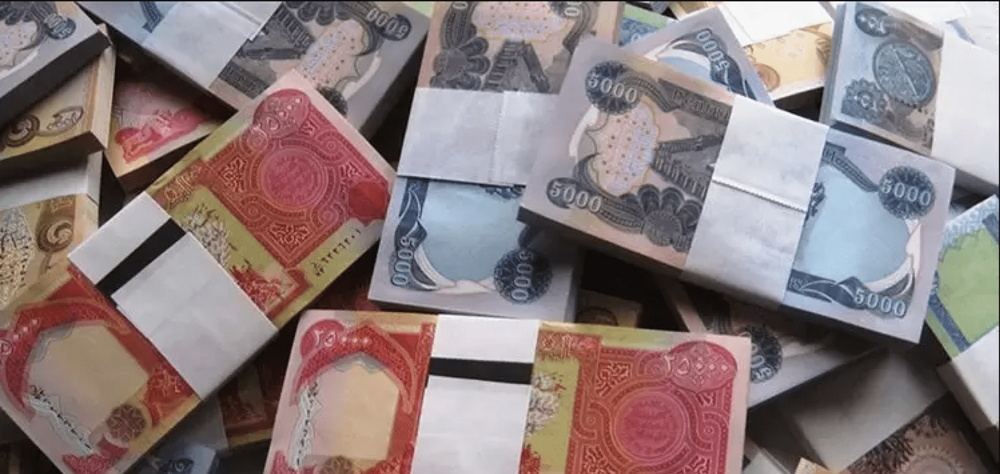Alwaght- Following a request by Sadrist Movement's leader Muqtada al-Sadr concerning the national currency price, in the past two days, the Iraqi currency market witnessed changes in dollar price. However, beyond al-Sadr's tweet and the trivial changes in the currency market, in the nation's politics there is a debate regarding the possible decisions and measures of the future government concerning the dollar-dinar exchange rate and a potential government confrontation of al-Sadr's approach.
Al-Sadr's six-point demands and impacts on the FX market
On February 17, al-Sadr issued a statement containing six demands on foreign exchange market control. Here are they:
1. Strongly stopping the currency smuggling
2. Looking into the matter of some banks such as Middle East, Al-Qaded, and Al-Ansari.
3. Summoning the central bank governor to the parliament
4. Summoning the finance minister
5. Organizing the currency market centrally by enacting some laws that increase the value of dinar exchange rate
6. Dealing firmly with banks belonging to some parties
Following the six-point statement, the Iraqi parliament announced its decision to hold a meeting with Finance Minister Ali Alawi and Central Bank Governor Mustafa Ghalib Makhif. As soon as the recall decision was announced, the selling price of the dollar in the domestic market decreased slightly, with the price of 100 US dollar moved back from 148,000 dinar to 147, 500 dinar. The dollar price slump against the dinar continued on Saturday and according to Iraqi news sources, the rate of every 100 US dollar is expected to decrease from 147,500 dinar to 146,600 dinar. This trend gave rise to different analyses among the Iraqi political analysts.
Dollar rate increase and decrease riddle
The manipulation of the dollar price against the dinar was first conducted in December 2020, during the approval of the 2021 budget. At the time, the government of Prime Minister Mustafa al-Kadhimi facing a stifling crisis as a result of the low oil prices in the global markets, adopted an austerity policy and put the devaluation of the dinar against the dollar on the agenda.
Under this policy, the PM, to cover the budget deficit, increased the dollar rate to 14,500 to 15,000 dinars, up from the several-year rate of 11,900 to 12,500. Although the move met massive criticism, the government insisted on its implementation. However, the recent oil price surge, unprecedented in 7 years, raised the need for lower dollar price against national currency, with al-Sadr being the top advocate.
The main proponents of the dollar devaluation plan argue that the decision to devalue the Iraqi dinar was made when the price of a barrel of oil in international markets was between $40 and $50, which has risen to more than $ 90 now. So, it is now necessary to revise the austerity plan.
Government unhappy with al-Sadr demand
In recent months, the calls for return to dollar rate of 12,000 dinar was opposed by the government. The central bank, warning about any downturn in the dollar exchange rate, said that the move would cause the currency rate to slide out of control and inflict financial damages on the citizens. The central bank argues that the move would cause distrust in the economic system and render uncompetitive the investment projects and national production, something bringing forth more unemployment and halt of projects.
Reacting to his summoning following al-Sadr's tweet, the finance minister said that "administration of the country with tweets is impossible," adding that his recall was "illegal" and he cannot stay silent to it.
"The government is not responding to any political party, but only to the Iraqi people through the elected parliament," he went on.
He called the recall an interference in the activities of the government by political parties, saying that his summoning order by the deputy parliament speaker was not part of his powers.
Consequences of dollar devaluation
Now the return to the previous exchange rate is up for debate and analysis of the Iraqi economists. Salam Semaysem, an Iraqi economist and researcher, insists that any decision to increase the dinar price against the US dollar can bring about some interests but necessarily would not force back the inflation rates to past levels.
"The dinar devaluation followed an agreement with international institutions and took 5 years to implement and is not easily reversible," he asserted.
Dr. Abdulrahman al-Mashadani, a professor of international economic relations, held that the government is to see into the currency rate a year after the decision making and as a result of the oil prices jump.
Seeing into the currency rates is highly difficult presently because it would mean we linked the dinar exchange rate to oil price and this is inappropriate economically," he continued, adding: "The decision to devalue the dinar was not successful from the beginning, as it devalued the local currency by about 30 percent, leading to a recession that led to a significant increase in food prices, etc."
Jamal Sidu, a former member of the previous parliament's Financial Committee and a member of new parliament, said currently there is no decision to increase or decrease the dinar price. There is just some talk about fighting corruption in currency sales and market prices control. Responding to a question about possible dinar value increase, Sidu said it is "highly unlikely", adding that it was good to devalue the local currency at that time but increasing its value now would heavily impact the citizens.



























